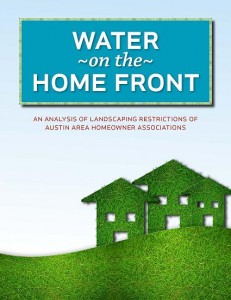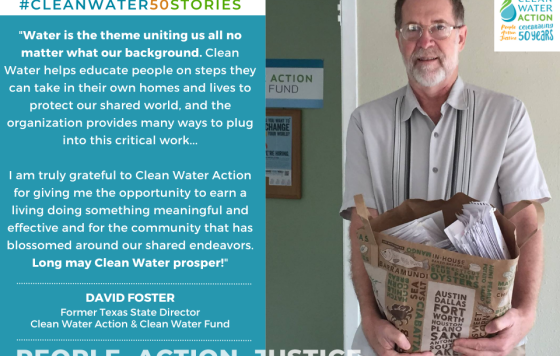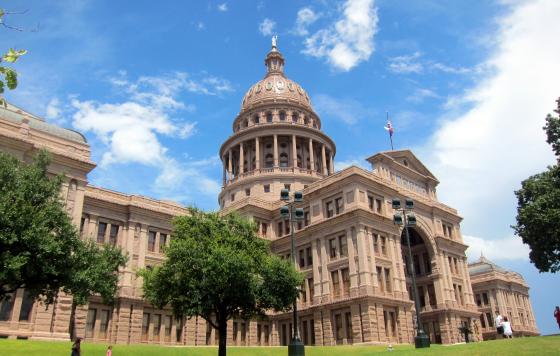
Is this ‘drought’ or is it…Texas? This is the question that imposes itself, as the drought wears on and as experts warn us to brace for a warmer climate. Drought has become our new norm, and water levels in reservoirs across the state continue to drop. We all need to do our part to create a ‘culture of water conservation’ that will help assure an adequate supply for our children and our state’s ecosystems. We can begin by eliminating barriers to water conservation.
One such barrier can be found in many homeowners associations (HOAs) deed restrictions. These restrictions often require full sodding with turf grass of front and side yards, and require that this grass be kept green. Failure to do this can result in fines. These rules drive up household utility bills and overall municipal water demand, particularly in the summer, when well over half of the typical single family home’s water use is for outdoor irrigation. This water is frequently expended on plants and grasses that are ill-adapted to our warming climate.
The Texas Water Development Board projects municipal demand to grow faster than any other sector, leaping from 27% of the total water used today to 38% by 2060. Over half of the $53 billion in state spending the Texas Water Development Board (TWDB) claims we need for new reservoirs and other infrastructure would be earmarked to meet this demand. We can save water for all of us — as well as money for individual households and for state and local government — by eliminating HOAs’ ability to impose these restrictions. Some HOAs, such as Avery Ranch and the Legends of Hutto in Williamson County, and Circle C in Southwest Austin, have recently amended their rules to allow residents to xeriscape. But most HOAs have yet to take this simple, important step.
The Legislature is now considering bills that would stop HOAs from banning water-efficient landscaping. This is a direct response to Clean Water Action members like you who have written hundreds of letters to lawmakers calling on them to do this. If the Legislature fails to act, we urge cities to rein in HOAs where they can, and we urge HOA residents to take the initiative with their HOA boards so they can install landscapes that are better suited to the Texas climate. Our water future depends on steps like these.



